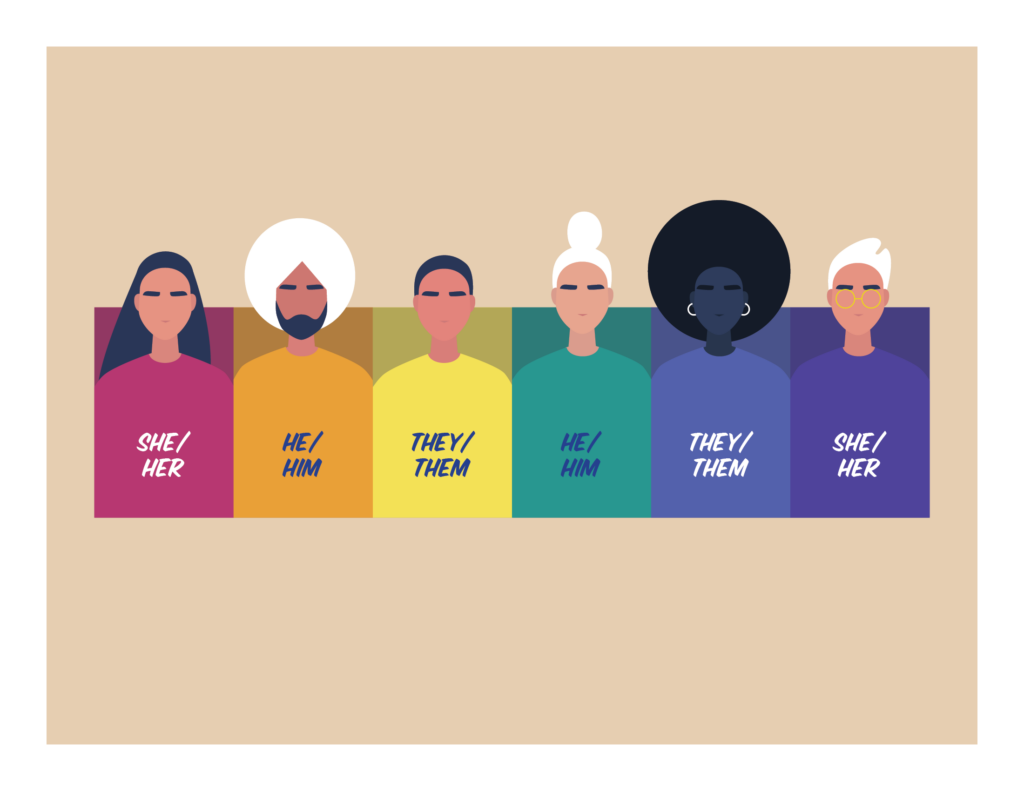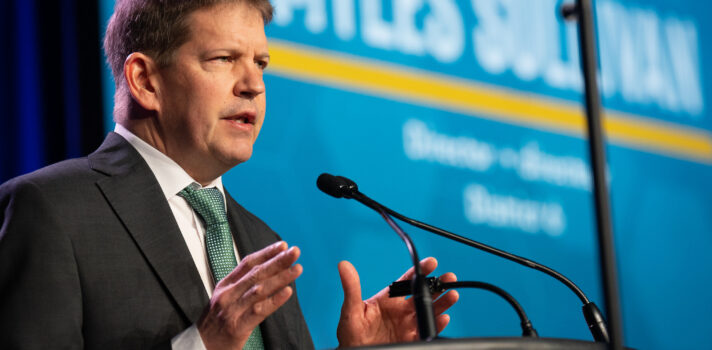Creating safer work environments is core to what we do as a union. Safety and well-being also include freedom from harassment and discrimination. Steelworker members bring a variety of life experiences and identities to their jobs and it is our duty to create positive, respectful work and union environments.
At United Steelworkers union events and meetings, we encourage everyone who is comfortable to share their pronouns because it lets others know that we are not going to assume someone’s gender. It makes our events and meetings more inclusive and helps people bring their whole self and know they will be respected for it. It tells others that we see them as they are and they are safe in this environment.
Just because someone was assigned a gender at birth, based on their body parts, does not mean that is the gender they are. It’s best not to guess. 2SLGBTQIA+ workers face disproportionate levels and violence and harassment in the workplace. As a union, we must stand firmly in support of workers facing this violence through addressing the harmful beliefs that cause it. Changing the words we use is one way we can show solidarity with our fellow workers.
Can you imagine using the same language as people did 50 or 100 years ago? We don’t do that because the language that we use evolves over time, just like our ideas and laws change too.
What is a pronoun?
A pronoun is a word that is used instead of a noun or noun phrase. We use a variety of pronouns every time we speak or write. Everyone uses pronouns to refer to themselves and others.
A gender pronoun is the word people use to refer to themselves – (ie. She, he, they, etc.) and it determined by the person alone, not our assumption about their identity. A gender pronoun is personal and reflects someone’s understanding of their own gender identity.
What happens if I get it wrong?
Misgendering is the term used for when we refer to someone as the wrong gender.
If you make a mistake, apologize, correct your mistake and try hard to get it right next time. When we are learning something new, mistakes do happen.
We want to try our best though because misgendering hurts and can create a hostile environment for transgender, non-binary, gender-fluid and other queer-identified people. Please note: if you or a member in your local may transition, please see our USW Transition Handbook.
They/them/theirs pronouns
They/them/theirs pronouns are pronouns that are ungendered. Some people use they/them/theirs pronouns to reflect their gender identity. While it can refer to multiple people, we also use they/them to refer to people whose gender we do not know. For example, “I’m seeing a new doctor. I’ve never heard of them before.”
It is alright to use they/them pronouns if you are unsure of someone’s gender. However, you should always use the pronouns people ask you to use.
Are you committed to creating positive meeting spaces for Steelworkers? If so, make sure to support the use of gender pronouns.
Want to make sure you start your meetings in an inclusive way?
Here is some text to read at USW events that can help:
“Hello, welcome to this event today. My name is ______ and I use she/her, he/him, they/them, _________ pronouns (choose at least one or add your own).
If you are comfortable, I invite you today to write down your gender pronouns so that others around you can know how to correctly refer to you.
Sharing our pronouns is an act of inclusion and welcoming and it helps create a positive and safer environment for everyone. Safety and wellbeing also include the freedom from harassment and discrimination.
Sharing our pronouns shows that we are not going to make assumptions about others’ gender and that all Steelworkers can show up as their whole selves and be respected for it.
It is also an important act of solidarity with the 2SLGBTQIA+ community and members of our union.
Thank you for your cooperation!”
Share on Facebook



